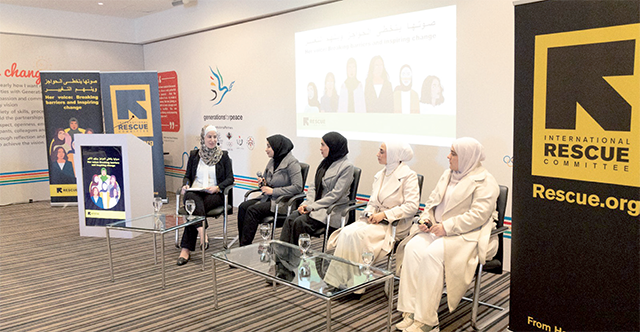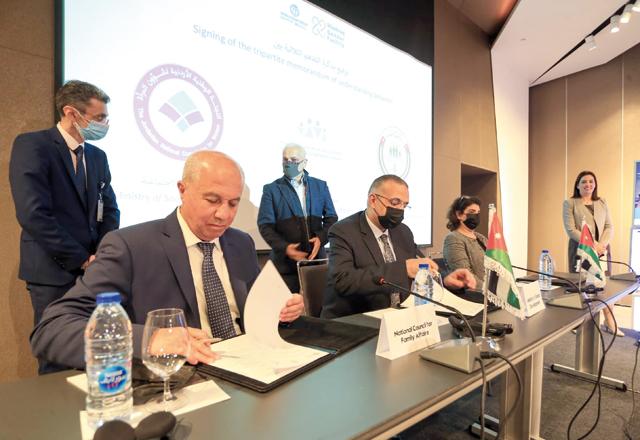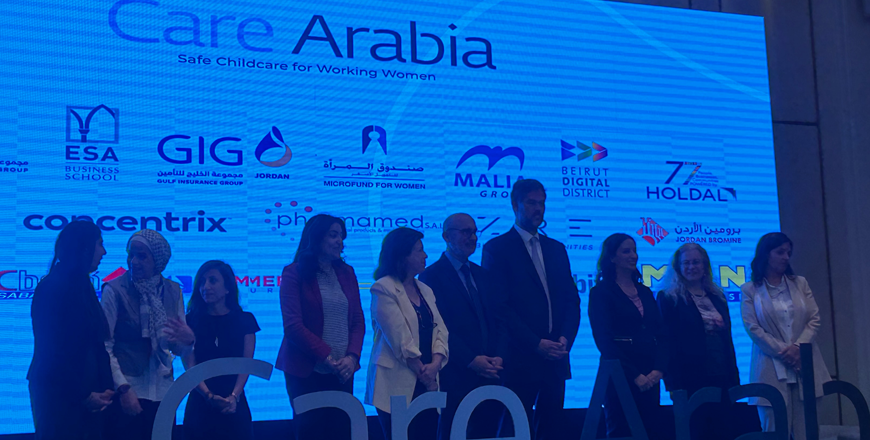You are here
IRC urges action to boost women participation in workforce
By JT - Mar 06,2024 - Last updated at Mar 06,2024

The International Rescue Committee holds an event to mark International Women’s Day and better understand the challenges and reasons behind the low levels of female labour market participation in Jordan (Photo courtesy of IRC)
AMMAN — The International Rescue Committee (IRC) held an event on Tuesday to mark International Women’s Day and better understand the challenges and reasons behind the low levels of female labour market participation in Jordan, according to a statement for The Jordan Times.
The event titled “Her Voice: Breaking barriers and inspiring change”, highlighted the considerable gender gap that women face in the labour market, and reflected on the multifaceted causes that lead to Jordan having one of lowest rate of women labor participation in the world, standing at 14.7 per cent.
Nivedita Monga, the IRC’s country director in Jordan said, “While we welcome the progress done by the Government of Jordan through different legislative initiatives on this matter, the road ahead towards closing the gender gap in Jordan is still long.”
“Together, as a collective force including government, international partners, private sector and civil society, we can move the needle on women’s economic participation in Jordan,” she added.
During the event, the most recent findings of the Jordan Economic Monitor — a World Bank semi-annual publication that in its last edition zoomed in on women economic empowerment — were also discussed, according to the statement.
According to this World Bank’s report, the Government of Jordan has taken several steps to overcome the barriers that women face entering the labour market. Nonetheless, there are still a series of reasons that undermine women’s participation in the workforce including access to childcare, public transportation, legislative environment and social norms.
According to the IRC’s policy brief shared during the event, women’s participation in the labour market in Jordan saw an increase since 1990 from 10.9 per cent to 14.7 per cent, however, the gap remains wide compared to male participation, which stands at 62.5 per cent. This gap remains higher in Jordan compared to the average of lower-middle income countries, where female workforce participation stands at 33.4 per cent, still nearly 14 per cent less than the global average.
The brief highlighted the need to expand the access to childcare services that currently remain limited in Jordan, with an estimate of only 2.3 per cent of children aged 0-5 benefitting from formal childcare. On another front, transportation remains a critical factor currently hindering women’s participation in the workforce, with 6 in 10 non-working women in the greater Amman region identified commuting as a key barrier to exercise their right to work.
The event also featured testimonies from four women entrepreneurs who received financial support from the IRC to start their projects. They reflected on their journey and agency to overcome barriers when starting or expanding their own entrepreneurial journey. The panel and audience reflected on their experiences as examples of the realities that women face when entering the Jordanian job market. The four women also shared their recommendations towards all stakeholders, including government, international community, private sector and civil society.
To achieve greater female participation in the country’s workforce, the IRC calls on stakeholders and relevant authorities to work on a holistic approach focusing on ensuring access to affordable and quality childcare, improving the public transportation system, and changing public perceptions and social norms about gender roles and relations through behavioural change campaigns that target both men and women, according to the statement.
Related Articles
AMMAN — Millions of families across Jordan are expected to benefit from the country’s first-ever National Childcare Policy, a "transformativ
AMMAN — The findings of a study titled “Childcare Services in Jordan: Assessment of Supply and Demand” revealed that low-income households i
AMMAN — The World Bank and the International Finance Corporation (IFC) on Wednesday launched the “Care Arabia”: Creating Safe and Quality Ch













